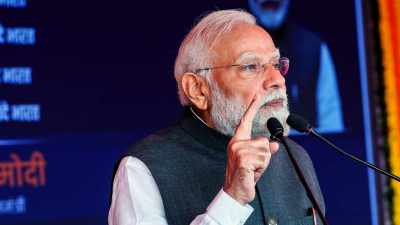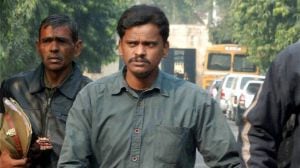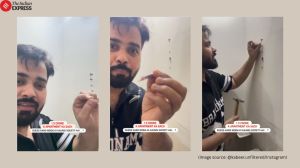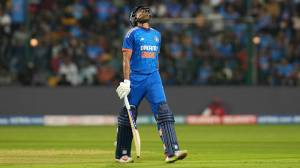Bombay HC clears release of Netflix’s Indrani Mukerjea docuseries: What the case was all about
A Netflix docuseries titled “The Indrani Mukerjea Story: Buried Truth” was originally scheduled to be released on February 23. Here is why its release was delayed.
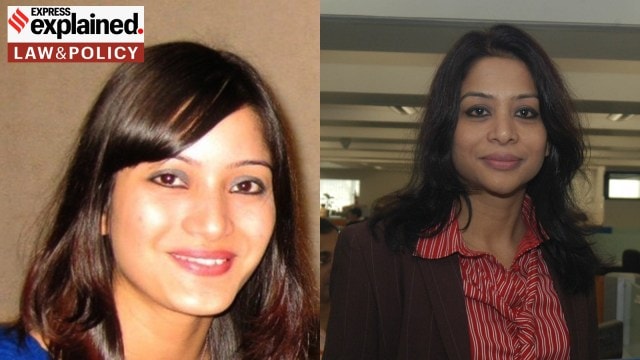 Sheena Bora (left) and her mother, Indrani Mukerjea. (Express Archives)
Sheena Bora (left) and her mother, Indrani Mukerjea. (Express Archives)Netflix docuseries “The Indrani Mukerjea Story: Buried Truth” was released on Thursday (February 29) after the Bombay High Court dismissed the Central Bureau of Investigation’s (CBI’s) plea seeking a stay on its airing. The division bench, hearing the CBI’s plea, said that it had viewed the series and prima facie could not find anything that goes against the prosecution.
During the previous hearing, the CBI had said that the show, which explores the high-profile Sheena Bora murder case, could prejudice the ongoing trial, following which, Netflix told the court that it would not air the show till February 29, the date of the next hearing, and that it would arrange a screening for the CBI and the judges.
Here is a look at the Sheena Bora murder case, why the CBI objected to the docuseries’ release, and some similar cases in the past.
The Sheena Bora murder case
On August 21, 2015, the Mumbai police arrested a man named Shyamwar Rai for the illegal possession of a firearm. During his interrogation, Rai disclosed his involvement in the murder of Sheena Bora, some three years ago.
Rai used to be the driver of high-profile media executives, Peter and Indrani Mukerjea. Rai revealed that he, along with Indrani and Sanjeev Khanna (Indrani’s ex-husband), had murdered 25-year-old Sheena Bora, Indrani’s daughter from a previous relationship, in the bylanes of Bandra, before getting rid of the body in Raigad district the next day.
The police subsequently arrested Indrani and Khanna, and in December, by which time the case had been taken over by the CBI, Peter was also arrested. The CBI said that the Mukerjeas killed Bora as they were against the blossoming relationship between Sheena and Rahul, Peter’s son from a previous marriage.
Indrani has continued to deny these claims, saying that there are major discrepancies in CBI’s case. She has also repeatedly said that Bora is in fact alive and well, somewhere abroad. Khanna, Peter, and she are currently on trial in a Mumbai special court, while Rai was made a prosecution witness in the case. All four are currently on bail.
So far, the CBI has examined 89 out of 237 witnesses in the case.
The CBI’s objection to the Netflix docuseries
The CBI first approached the trial court earlier this month, for a stay on the release of the docu-series. It was told, however, that only the High Court or the Supreme Court could decide on the matter.
Thus, on February 21, two days before the docuseries’ scheduled release, the CBI approached the Bombay High Court. The CBI said in its appeal that the poster of the show makes claims that it features “new revelations and unprecedented access”, which the agency believed could mislead the public and the witnesses in the ongoing trial.
The central agency said that the documentary-makers “are trying to glorify the alleged innocence of the accused [Indrani]”, which could influence how witnesses depose before the court.
It also said that the show features Mikhail, Indrani’s son and Sheena’s brother, as well as Vidhie, Indranis other daughter, both witnesses in the ongoing case. According to the CBI, this constitutes “a brazen violation” of Indrani’s bail conditions, which prohibit contact with witnesses till all evidence is recorded.
Netflix contested CBI’s petition, saying that the agency cannot approach the court at the last minute, and that there was no gag order against witnesses. Netflix’s lawyers argued that stopping the docuseries’ release would amount to ‘pre-censorship’, but later agreed to defer the release till the date of the next hearing.
The issue of ‘censorship’
The issue of censorship has been considered by courts in relation with Article 19(1)(a) which provides for the freedom of speech and expression. Courts have been generally reluctant to enforce pre-censorship unless pressing grounds exist.
However, in cases which are sub-judice, the courts also have to consider a number of factors.
In many cases, courts have considered Article 21, which says “no person shall be deprived of his life or personal liberty except according to procedure established by law”. This guarantees individuals a right to a fair trial. Courts have to take into account whether the content in question (book/film/series) could impact impartial court proceedings.
Accused or their family members have also raised the concerns regarding their right to privacy and dignity in such cases. Notably, in most such cases, witnesses and family members of involved parties have approached the court, rather than the investigation agency itself.
Here are some previous cases where courts allowed/denied censorship requests.
Similarly, a Netflix docu-series on the lives of Vijay Mallya, Nirav Modi, Subrata Roy, and B Ramalingam Raju, billionaires who are implicated in different cases, was allowed to air by the court, but without the episode featuring Raju.





- 01
- 02
- 03
- 04
- 05


